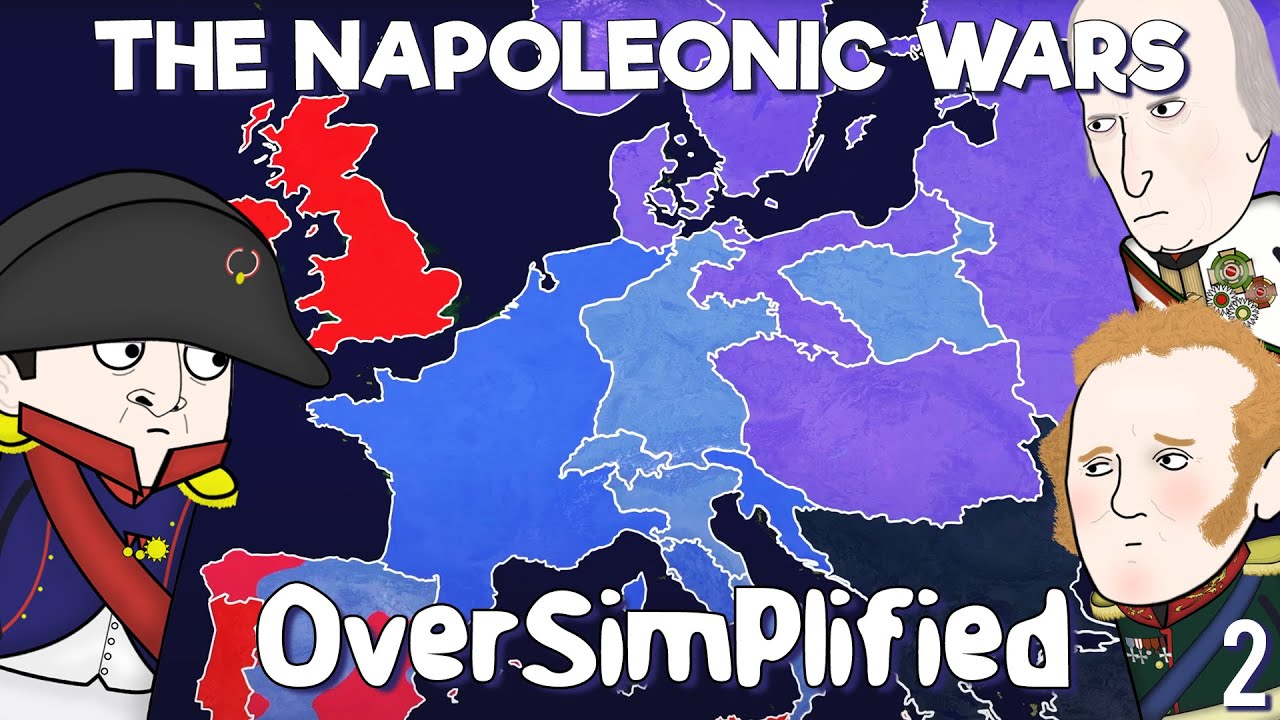Storia in 5 mosse (pt.1) - Napoleone, l'uomo che ha cambiato l'Europa
Summary
TLDRThis video script traces the meteoric rise and eventual fall of Napoleon Bonaparte, a figure who dominated European politics and warfare for over two decades. Born in Corsica in 1769, Napoleon's military genius led him to rapid promotions and significant victories in Egypt and Italy. His influence extended beyond warfare as he seized power in France, reorganized the European states, and spread revolutionary ideas of civil administration and legal equality. Despite his efforts to dominate Europe, his reign ended with his defeat at Waterloo in 1815, leading to his exile and death in 1821 on Saint Helena. The script highlights his enduring impact on European governance and law.
Takeaways
- 👑 Napoleon Bonaparte was a figure that dominated European politics for two decades, instilling fear in the powerful across the continent.
- 📅 Born in 1769 in Ajaccio, Corsica, Napoleon was sent to France for his education, where he chose a military career over other options due to his introverted nature and provincial background.
- 🤴🏻 Despite his young age, Napoleon rose to prominence quickly, becoming a general at 24 and eventually the leader of France after the death of Robespierre.
- 🏰 Paris during Napoleon's rise was a city filled with protests and conspiracies, but he was determined and ruthless in restoring order, leading his soldiers personally.
- 🎖️ Napoleon's military successes in Egypt and Italy bolstered his reputation, and he was seen as a hero by the French public, who admired his ability to bring wealth and art back to France.
- 🌍 His ambitions extended beyond military conquests; he sought to reshape the political landscape of Europe, creating friendly republics and later kingdoms in Italy and Naples.
- 📚 Napoleon's reign saw the spread of French revolutionary ideals such as 'liberty, equality, fraternity,' but in reality, he held absolute power and often oppressed those who sought freedom.
- 🖼️ The famous painting of Napoleon's coronation in Notre Dame in December 1804 illustrates his self-proclamation as Emperor and the crowning of his wife Josephine, with many notable figures of his empire present.
- ⚔️ Despite his military genius, Napoleon faced significant challenges, particularly the disastrous Russian campaign and the eventual coalition against him, leading to his defeat at Waterloo.
- 🏝️ Exiled to Elba, Napoleon escaped but was defeated again at Waterloo, leading to his final exile on Saint Helena, where he would die in 1821.
- 🏛️ The Congress of Vienna in 1815 attempted to restore the old order in Europe, but Napoleon's legacy lived on, influencing a new model of centralized, efficient administration and the spread of Enlightenment ideals.
Q & A
In which year and place was Napoleon Bonaparte born?
-Napoleon Bonaparte was born in 1769 in Ajaccio, Corsica.
What career did Napoleon Bonaparte choose and why was it significant?
-Napoleon Bonaparte chose a military career because he was interested in artillery, which was assuming modern characteristics at the time.
At what age did Napoleon Bonaparte become a general?
-Napoleon Bonaparte became a general at the age of 24.
What event marked Napoleon's rise to power in France after the death of Robespierre?
-After the death of Robespierre, Napoleon gained the trust of the Directory that governed France, which marked his rise to power.
In which two countries did Napoleon Bonaparte achieve significant military victories?
-Napoleon Bonaparte achieved significant military victories in Egypt and Italy.
What was the significance of the Battle of Marengo in 1800?
-The Battle of Marengo in 1800 marked a victory for the French against the Austrians and was a significant moment in Napoleon's military career.
What was the political ideology that Napoleon represented?
-Napoleon represented the political ideology of the French Revolution, which was based on the principles of liberté (liberty), égalité (equality), and fraternité (brotherhood).
How did Napoleon Bonaparte's reign affect the map of Europe?
-Napoleon Bonaparte's reign led to a redrawing of the borders in Europe, creating a network of 'sister republics' and client states that were friendly to France.
What was the title Napoleon Bonaparte assumed in the painting at Notre Dame in December 1804?
-In the painting at Notre Dame in December 1804, Napoleon Bonaparte is depicted as Emperor of the French, having crowned himself.
Why did Napoleon Bonaparte impose a blockade on Great Britain?
-Napoleon Bonaparte imposed a blockade on Great Britain to damage its economy and to prevent it from trading, as part of his efforts to weaken Britain's influence.
What was the outcome of Napoleon's invasion of Russia in 1812?
-Napoleon's invasion of Russia in 1812 ended in disaster, with his army suffering from famine, freezing temperatures, and defeat, which marked the beginning of his decline.
What was the legacy of Napoleon Bonaparte's rule in terms of law and administration?
-Napoleon Bonaparte's rule left a legacy of a centralized administration with clear borders, efficient communication networks, and uniform systems of taxation and conscription. He also introduced the Napoleonic Code, which established the principle of legal equality for all citizens.
Outlines

This section is available to paid users only. Please upgrade to access this part.
Upgrade NowMindmap

This section is available to paid users only. Please upgrade to access this part.
Upgrade NowKeywords

This section is available to paid users only. Please upgrade to access this part.
Upgrade NowHighlights

This section is available to paid users only. Please upgrade to access this part.
Upgrade NowTranscripts

This section is available to paid users only. Please upgrade to access this part.
Upgrade NowBrowse More Related Video

The Napoleonic Wars - OverSimplified (Part 2)

MENGKUDETA UNTUK JADI KAISAR! Ini Biografi dan Fakta Menakjubkan Napoleon Bonaparte, Kaisar Prancis

Napoléon, la destinée et la mort - Documentaire 2021

Resumo de História - Período Napoleônico e Congresso de Viena (Débora Aladim)

Napoleonic Wars in 8 Minutes - Manny Man Does History

Napoleon Bonaparte l Itihas Gawah Hai l Amrit Upadhyay l StudyIQ IAS Hindi
5.0 / 5 (0 votes)